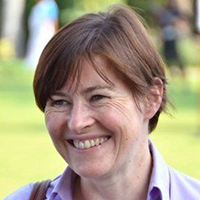Wanted: more women in aquaculture

THE aquaculture industry needs more women ‘quite urgently’ at senior levels to get the full potential out of businesses, said Marine Harvest Scotland managing director Ben Hadfield at a Women in Aquaculture meeting in Aviemore this morning.
Hadfield was one of four panellists taking part in a discussion on gender equality, held in the conference tent at the Aquaculture UK exhibition and drawing a capacity crowd.
He said that during the recent parliamentary inquiry into salmon farming, the industry had the opportunity to defend itself. Although the team had done well, ‘what let us down was the fact that we looked like what we were – five middle aged men in suits’.
While he said there were no actual barriers to diversity and that innovation and technology had removed the obstacles for women on farm sites, the operational sector was still male dominated.
Experience at farm manager level was needed to reach the top and companies must understand the risks of not embracing diversity, he said.
And he admitted that the morning’s discussion had got him thinking that Marine Harvest should put a structure in place to help recruit more women into farming roles.
If he had a choice between equally good male and female candidates for the same job he said he would ‘choose diversity’ with the aim of strengthening the team. And ‘it would be nice to have a female MD here in Scotland’.
However, he added that ‘diversity is no substitute for ability, there’s no free ride’.
Agreeing with this was Julie Hesketh-Laird, the recently appointed chief executive of the Scottish Salmon Producers’ Organisation. She said from what she had seen of the industry so far, aquaculture companies such as Scottish Sea Farms and Marine Harvest were ‘doing very well and far better than the UK average’ on equal pay.
The industry wanted to unlock growth and why would it do that without half the population – ‘diversity makes really good business sense’.
She said she had had both female and male role models and mentors throughout her career and, along with the other speakers (Hadfield, Sheila Voas, chief veterinary officer for Scotland, and Ruth Clements, head of veterinary programmes at Benchmark), she agreed a mentoring scheme might help women’s progress.
Voas suggested that female aquaculture professionals could ‘muscle in’ on the existing Women in Agriculture mentoring group, or set up their own bespoke network.
She believed that there was not necessarily a deliberate bias against women in the workplace but rather preconceived ideas about gender roles.
‘We need to create an environment in which people can develop and show they are the right people for the job,’ she said.
Her advice to women in the industry was to challenge unconscious bias, believe in themselve – and always wear comfortable shoes!
The seminar chair, Heather Jones – CEO of the Scottish Aquaculture Innovation Centre, which sponsored the Fish Site organised event, said 77 per cent of the staff in her organisation were female.
She predicted that in 10 to 15 years’ time, every business in aquaculture would have a much more balanced workforce.
Clements revealed that Benchmark was already embracing flexible working practices and had developed a diversity programme to address the gender pay gap.
And Hesketh-Laird said companies that really wanted diversity put policies in place, offered training, unpicked unconscious bias, intentionally ensured recruitment was gender equal, and championed diversity at all levels of their business.

